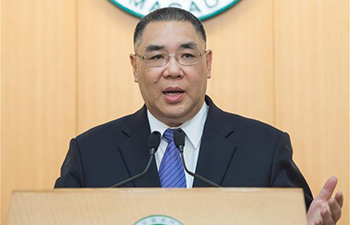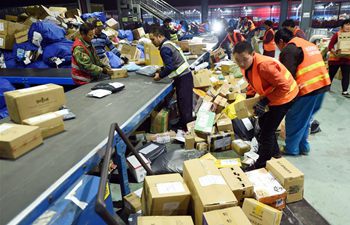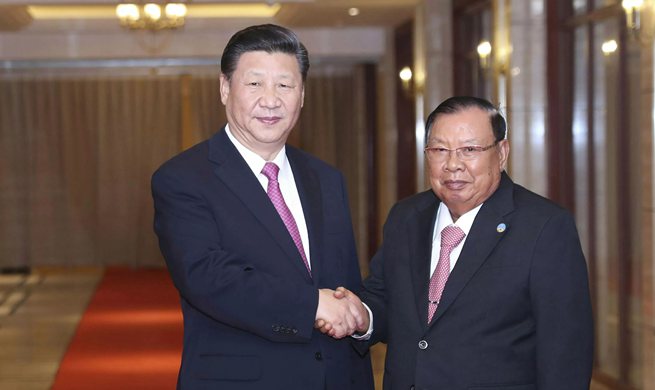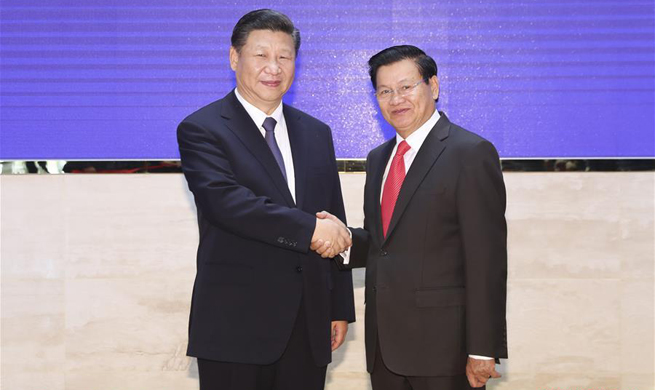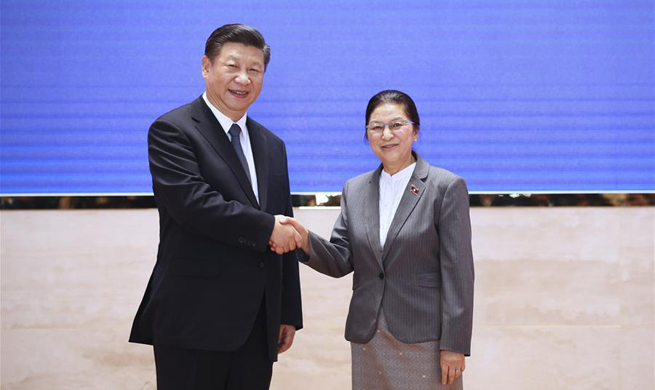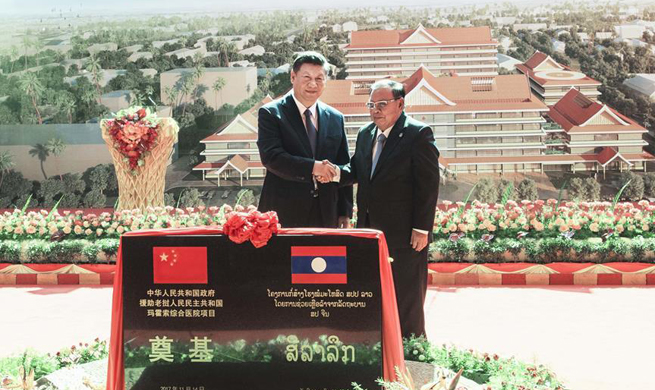NEW YORK, Nov. 14 (Xinhua) -- Cooperation is the only viable option for China and the United States to consolidate bilateral relationship and help shape the emerging global order amid a slow-recovering world economy and rising geo-political tensions, said former U.S. and Chinese diplomats.
"Clear-headed strategic assessment of the most important bilateral relationship is warranted more than ever before," said He Yafei, former vice-minister of China's Ministry of Foreign Affairs, in a keynote address to an event organized by New York University (NYU) Monday evening.
As the "First Tier Two," the United States and China have to "rise above ideological divide and bias" to keep the huge ship of the bilateral relations "on an even keel" for decades to come, said He, who served as minister counsellor from 1998 to 2001 at the Chinese Embassy in the United States.
"With the 'big size', two countries' policies towards each other and on global issues will inevitably have broad and strong 'spill-over' effects on other countries," He said. "Therefore closer macro-policy coordination and concerted actions in global governance gradually move to the top of bilateral agenda in both regional and global contexts."
Clark T. Randt, who was U.S. ambassador to China from 2001 to 2009, echoed He's comments in a conversation moderated by Jeffrey Lehman, vice chancellor of NYU Shanghai, following the former Chinese diplomat's address.
"I was in China about seven and a half years. I saw ambassador He probably four or five times a week. We had lots of issues to fight and argue about," said Randt. "At the end of the day we realized, everybody in the world loses if the United States and China don't cooperate and get along with each other."
"Fortunately, the leaders of our two countries have that perspective. It's not surprising we have all these differences because vastly different histories, cultures, national circumstances and the values...but we have common ground that outweighs these differences," said Randt, who flew to New York City from his home in Florida to meet his old Chinese friend.
"We need peace, stability for our economies to prosper. We both want our peoples, our respective people to be healthy and prosperous. We're doing well, the whole world is doing well. It's imperative we get along as we can. There's no reason that we can't coexist," said Randt, recalling former U.S. President George W. Bush said pointedly in a graduation speech at West Point that "China is not Germany of the 30s. It's not Japan of the 40s."
The two former diplomats also agreed the United States and China should jointly promote "reglobalization" and better global governance -- globalization with better distribution of benefits to have more people enjoy the fruits of economic cooperation.
"The United States should think twice before acting on unilateral withdrawal from its international commitments," said He.
Randt made it clear that he is not a big fan of the "America First" strategy put forward by the current U.S. administration as there are so many issues of global significance that America "can't do it alone."
"Counter-terrorism, nuclear non-proliferation, can America do that by itself? Of course, it can't," Randt said. "These are serious problems. All these different facets are where the United States can't do it alone."





